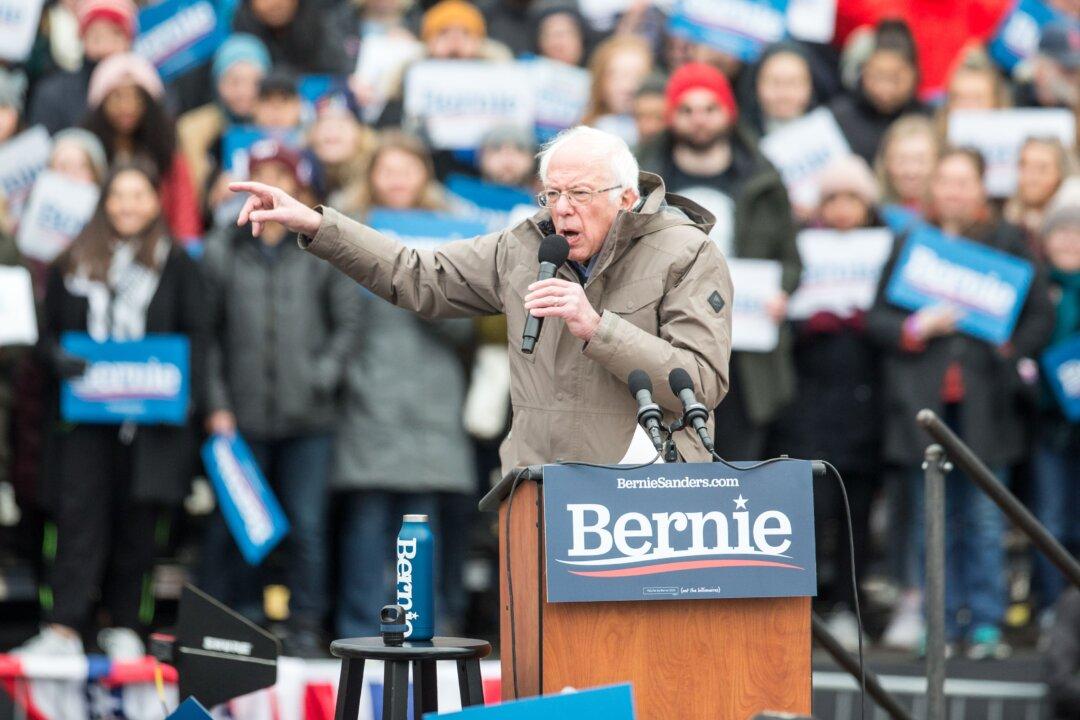Presidential candidate Sen. Bernie Sanders (I-Vt.) is likely to receive most of the more than 1,300 Democratic delegates about to be pledged in Super Tuesday voting, polls show.
While Sanders’s main opponent, former Vice President Joe Biden, may win some of the 14 primaries and one caucus scheduled for March 3, Sanders leads polling in most of the states with larger delegate counts, particularly California, where 415 delegates are to be won, and Texas, which will pledge 228 delegates.





